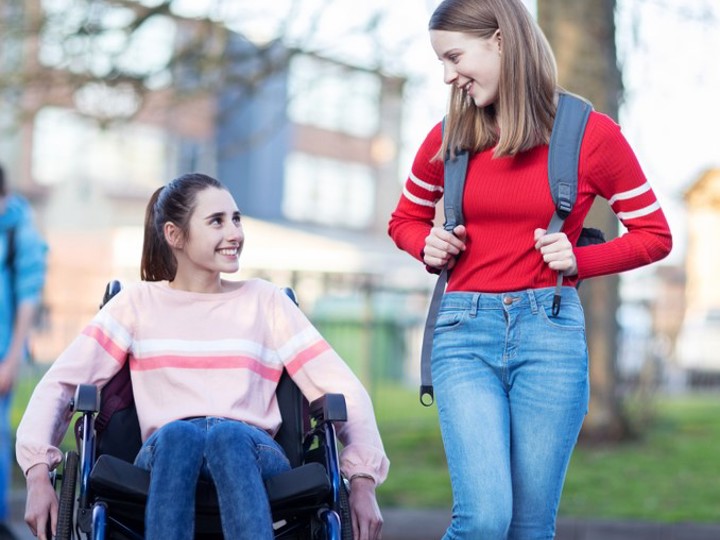Getting ready for change: Special Educational Needs and Disability (SEND)

Explore the topics on this page:
Information for school aged children
What you can do to help
- Continue to encourage their development. Talk and listen. Chat about everyday things and find out what interests them.
- For younger children encourage to take turns in the conversation. As they get older explore their ideas with them, listen and encourage them to see from other points of view.
- Play together, follow your child’s lead, and let their imagination explore their own ideas and creativity. As they grow older spend time and notice what interests them.
- Give your child opportunities to be with other children/young people. They can learn a lot from each other.
- Think about if anything has changed or happened either in their life or just recently. This could be having an impact on their development.
- Seek support if you are concerned that your child's development has stopped or that they have stopped doing things they used to, seek support to explore what might be happening for them.
- Sometimes we will use another development tool called Schedule of Growing Skills (SOGS) to help us think about which stage your child is at and most importantly what your child can do, celebrating their success. Remember that all children develop at their own pace, and this tool is another way of helping us to understand how your child is progressing. SOGS can be used to review development from 0-5 years old. To complete it, a practitioner will assess your child either at home or a clinic appointment using a range of activities. They will discuss the assessment with you to ensure we have all the information about your child
- Write down what you do to support your child each day. This can help form a plan which highlights areas where your child needs assistance whilst at their nursery, preschool or school.
Information for young people
If you have a health or developmental condition that is impacting on everyday life, this is often referred to as:
- Special Educational Need or Disability (SEND)
- Special Educational Need (SEN)
- An additional need
It may be that from birth you have faced some extra challenges or these may have become more obvious as you have grown older.
Your additional needs could be developmental, physical, learning, behavioural or sensory. Your needs might be easily met with a regular plan of care or something more complex. You may have an Educational, Health Care Plan (EHCP). Some additional needs may continue throughout your life. This means you and your family may require support from a number of services.
All children and young people should have access to the right services, at the right time, and this is to make sure you can reach your full potential. This includes as you approach adulthood and transition into adult services.
Making SEND everybody’s business Cambridgeshire, Peterborough City Councils and NHS have a shared vision that children and young people-
‘Dream big, achieve well, have choice, control and lead happy, fulfilled lives’
What you can do to help yourself:
- Looking after yourself is important for good physical and mental health. This includes your personal hygiene and mental stimulation.
- You may have an additional need that means you rely on someone else to help you. Talk or communicate to them about what you want and need and be active in planning your care.
- Self-care is individual to you and how you chose to relax may not be another person’s choice. It also does not have to be expensive and might be anything from time to read, exercise, bath to having a day out, seeing friends or time away.
- It’s ok to think about yourself and ask for help.
- Take time to talk to a trusted adult, such as a relative, teacher, support worker or one of our team using Chathealth, our confidential text messaging service.
- We can offer advice on a range of health topics such as; emotional health, substance use, relationships, healthy eating, bullying or looking after your physical health.
- Read more about mental health, sleep and life skills.
- Visit the NHS 5 steps to mental wellbeing.
